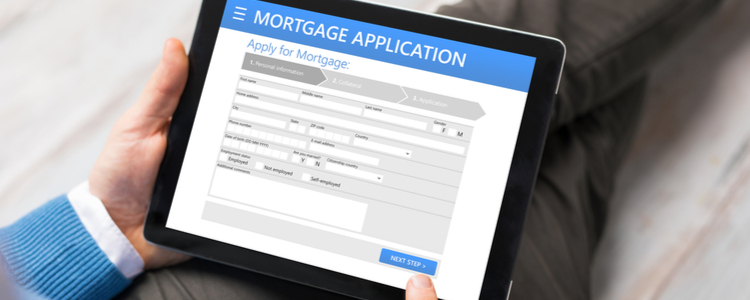Is a Debt Consolidation Loan Right for You?
Debt consolidation is a tool for helping reduce debt. But is this the right solution for you?
The Optimal Credit
In general, the optimal applicant has fair to good credit, and is looking to better manage and reduce their high interest debt. One of the most important factors in applying for a debt consolidation loan is your FICO® credit score. This implies your ability to manage your finances and is best seen above 600. Your FICO® Score is greatly impacted by your payment history (which accounts for 35% of your score) so it is best to ensure your current payments are being made on time. A new feature by Experian can help improve your score instantly - Experian Boost™ helps by giving you credit for the utility and mobile phone bills you're already paying.
The Right Debt
Not all debt is able to be consolidated. Generally, any installment loans, credit cards, store-issued credit, medical bills, and payday loans are eligible for consolidation. Debt that is not excessive (ideally $5,000-$40,000) aligns with most debt consolidation lenders. The consolidation loan rolls these multiple debts into a single payment to help manage your debt. If your debt is too extreme, the consolidation lender may not be able to offer affordable payments, and you may want to explore alternatives, like debt settlement or credit counseling.
The Ultimate Goal
Ultimately, debt consolidation is part of a plan to become debt-free. For this reason, a debt consolidation loan works best if you are willing to stick to a budget and not build back up debt that was just paid off with the consolidation loan. This allows you to commit to the loan payment and achieve your goals.
The Real Advantage
The most obvious advantage of a Debt Consolidation Loan is reducing debt. More specifically, though, debt consolidation loans create a single payment to pay off multiple creditors, which helps avoid missed payments and penalties. Credit card interest can range from 18-25%, and in most cases a debt consolidation loan can offer a lower interest rate, allowing the debt to be paid off quicker as a result of these interest savings.

This content was not written by a certified financial planner or advisor. It’s intended for informational purposes only and should not be considered legal, financial, or investment advice. Consult a professional to learn what financial products are right for you.

You have options when it comes to managing your debt. You may have considered debt consolidation, but is it right for you?
Is Debt Settlement Better or Worse Than Chapter 13 Bankruptcy?
Settling debts or declaring bankruptcy are two routes that some people choose to get out from overwhelming debt. Each offers its pros (and cons). But the goal is the same — get back on your financial feet.
How Does Debt Settlement Work?
If you’re already behind on your bills, you may be able to settle your debts with your creditors.
“In a debt settlement situation, the goal is to pay the creditor less than the entire amount and pay them over time interest-free,” says Leslie H. Tayne, Esq., a financial attorney and author of Life and Debt. “The debt settlement company or attorney is negotiating with them to settle the debt.” Alternatively, you may be able to negotiate your own settlements with your creditors.
A creditor may agree to take less than the full amount you owe because at least it’s getting something — particularly if you have an unsecured loan (such as credit card debt) and don’t owe so much that it’s worth the creditor’s time and money to sue you.
Generally, you’ll have to put money aside each month and build up a fund that you can use to settle your debts. You (or the company representing you) will then offer the creditor a lump-sum payment or a monthly payment plan that results in repaying less than what you currently owe.
How Does Chapter 13 Bankruptcy Work?
There are two common types of consumer bankruptcy, Chapter 7 and Chapter 13.
A Chapter 7 bankruptcy (i.e., liquidation) could immediately wipe out your debts. However, you’ll need to qualify based on your income, and you’ll be forced to sell your non-exempt property.
A Chapter 13 bankruptcy may be a better option (and potentially your only option) depending on your income. With a Chapter 13 bankruptcy, you can:
Keep all your property
Catch up on payments and avoid foreclosure or repossessions
Make monthly payments for three to five years and then have your remaining debt discharged
There are still limitations on who can file a Chapter 13 bankruptcy, though. “You don’t get the right to file bankruptcy, you have to qualify for a Chapter 13, which means your income has to meet the means tests,” says Tayne. “ Then, you have to provide a proposed plan on how you’re going to pay back your creditors.”
When Might Debt Settlement Be Best?
If you’re already behind on your bills (creditors are unlikely to accept less than the full amount owed if you’re current) and primarily have unsecured debts, then debt settlement might be a good option.
You could benefit by repaying less money and may be able to set up a monthly payment plan for the settled amount. Tayne also points out that when you apply for insurance or financial accounts in the future, “they may ask if you’ve filed bankruptcy. But they generally won’t ask if you’ve settled debts.”
Debt settlement can also be more flexible if your financial situation changes. “In a bankruptcy situation, you have to report the changes back to the trustee, and that could alter your plan,” Tayne says. But with a debt settlement, you can stick to the same plan even if your income increases.
The drawbacks to debt settlement include potentially more severe consequences for a missed payment. “If you miss a payment, the creditor may be able to get the full amount you owed minus the amount you already paid,” says Shawn M. Yesner, Esq., owner of Yesner Law, PL. Missing a Chapter 13 bankruptcy plan payment could lead to your case being dismissed, but you may have a chance to catch up on your payments first.
Additionally, even if you can settle some of your debts, other creditors might not agree to your debt settlement offers, which could leave you on the line for the full amount.
You’ll also need to watch out for debt settlement scams. You may be left with larger balances as your debts accrue interest and fees during the settlement “process,” if the company isn’t able (or, even worse, never tries) to settle the debts.
When Might Chapter 13 Be Best?
“The issue that I find when I’m doing a debt settlement is the borrower must have a lump sum of money to get rid of the creditor, or has to be able to afford a monthly plan,” says Yesner. “The debt settlement plan only works if you can settle with all of them. Otherwise, you may wind up in bankruptcy anyway.”
Additionally, settling with a few creditors can lead to issues if you wind up declaring bankruptcy later. “You’re not allowed to give preference to one creditor before filing bankruptcy,” says Yesner. If you’ve already settled debts, the bankruptcy trustee may raise your monthly payments and use the money to offset the earlier settlements. Or, it could clawback your settlement payments and spread out the money amongst your creditors.
“A lot of times, the Chapter 13 will be a more efficient use of your money,” says Yesner. This is because your Chapter 13 monthly payment amount may be lower than the combined monthly payments from debt settlements, and the remainder of your debt could be discharged after you complete the bankruptcy payment plan.
Chapter 13 may also be a better option if you’re dealing with a foreclosure or vehicle repossession. You may lose your home or car while pursuing a settlement, but could be given the opportunity to catch up with a Chapter 13.
However, Chapter 13 can result in repaying more overall than debt settlement. You also won’t be able to file for a Chapter 7 bankruptcy during the next six years, will be on a payment plan for three to five years, and all your disposable income will be tied up the payments.
The bankruptcy may also have a larger negative impact on your creditworthiness (although, both settlement and bankruptcy can hurt your scores) as the bankruptcy can live on your credit reports for up to seven years after you file.
A Third Option — a Debt Management Plan
Another option may be to work with a certified credit counselor to set up a debt management plan (DMP). With a DMP, you’ll make one monthly payment to the credit counseling organization, which will then distribute the money to your creditors.
Although you’ll wind up repaying the debt in full, the credit counselor will negotiate with your monthly payment by reducing your interest rate, waiving fees, or moving you to a different payment plan. If you’re primarily dealing with a lot of credit card debt, a DMP can be an affordable option with a more positive impact on your credit history than debt settlement or bankruptcy.


Managing your debt plays a critical role in achieving financial success. Knowing what to do when debt levels becomes overwhelming can save you both time and money. The following is presented for informational purposes only and is not intended as legal advice.
Beware of these Financial Scams Targeting the Elderly
A sobering truth is that older adults are oftentimes the target of costly scams. It makes perfect sense: they tend to have a more robust nest egg. What’s more, they might not know how to go about reporting such a crime, or might be embarrassed to be the target of a fraudster. In turn, they aren’t as likely to report it.
Scams targeting the elderly are rampant and come in many shapes and sizes. Here are just a few of the most popular examples, with tips on how to avoid falling victim.
The “Help Your Friend in an Emergency” Scam
In this scam, also known as the grandparent scam, the con artist will pretend to be somebody you know. They’ll usually reach out to you by email or on social media asking for money, explains Justin Pritchard, a CFP® and founder of Approach Financial. “They might say they’re being held in jail without justification, that they just got robbed and need cash to continue with their trip, or that they need help with emergency expenses,” says Pritchard. Bottom line: They’re in a bind, and need money.
How to Prevent: It’s best to reach out to the person who the con artist claims to be directly, and through a different mode of communication, advises Pritchard. For example, if the scammer send you an email, try calling their phone even though they say they’re out of the country or in jail. “If they answer, you know it’s a scam,” says Pritchard.
If you can’t get a hold of the person, contact other friends and relatives to ask if the story sounds legitimate. Presumably, somebody close to them would know if the person is actually traveling. “If all else fails, start asking questions,” says Pritchard. “Either ask for details, or ask them to verify something that only the two of you know. Whatever you do, don’t offer to send them any money before you reach out to your grandchild, relative, or friend directly and verify their identity.”
IRS Phone Call
In this scam, you’ll get a call with urgent news that you owe taxes. The caller is oftentimes hostile and will toss a litany of threats: jail time or revoking your driver’s license, says AnnaMarie Mock, a CFP® of Highland Financial Advisors. “They might know the last four digits of your Social Security Number, and might even mimic the IRS toll free number on the caller ID,” says Mock.
How To Prevent: The Internal Revenue Service (IRS) will never initiate contact with taxpayers by email, text, phone, or social media, explains Mock. The IRS only sends written notifications through the mail and will never ask for credit card, debit card, or prepaid card information over the telephone. Mock suggests reporting the incident to the Treasury Inspector General for Tax Administration at 800.366.4484 or through the IRS phishing reporting page.
You’ve Won the Lottery
You might receive false notification that you’ve won a lottery prize or sweepstakes. You might receive notice via email, text, or a phone call. You’ll be congratulated, but advised that in order to receive your prize, you’ll need to send money for taxes or a processing fee or taxes.
In some cases, the scam many even continue after you realize you’ve been taken. “Once the individual realizes there’s no reward, a cohort of the original scammer calls, pretending to be an attorney that requires an upfront fee.” In the end, you could possibly be victimized by the same scam twice.
How To Prevent: Don’t be duped. If you haven’t entered a sweepstakes, you probably haven’t won a sweepstakes. Unearned high value prizes are often a sign of a scam. Avoid the “pay to play” sweepstakes, says Mock. If it’s too good to be true, it’s probably not true.
Internet Fraud
Internet fraud is on the rise. In 2018, phishing scams accounted for almost 14 percent of all reported scams, followed by 11 percent from harassment and life threats.
“Phishing scams involve an authentic-looking email, text message, or website that will request financial information like account numbers or credit card numbers,” says Mock. “Scammers can design resources to appear like a legitimate business - or even an institution you have a relationship with already such as your banking institution.”
How to Prevent: Never email sensitive information as it’s not a secure method, advises Mock. And don’t open attachments or click links from unknown senders, as they can contain viruses or malware.
Phantom Debt
In this scenario, fraudsters will contact the victims about non-existent debt. The scammers will ask for a method of payment where they can remain anonymous, like prepaid debit cards or a wire transfer.
“The collectors might have some personal information that appears to be legitimate, but will refuse to answer specific questions related to the debt,” says Mock. “They’ll ask for sensitive personal information and will refuse to provide a phone number or mailing address of the agency.”
How to Prevent: Ask for the caller to verify their name, company, address, and phone number, recommends Mock. “You can even request a written explanation of the debt including all information about the amount, charges, and creditor,” she says. “If you cannot verify, do not provide them with any sensitive personal information.”
Report Financial Elder Abuse and Fraud
Unfortunately, financial elder abuse is widespread and the victims are often not in the best position to protect themselves or get the assistance they need. If you feel that an elderly friend or family member is being taken advantage of, report the situation to the Adult Protective Services agency in your area. You can use eldercare.acl.gov or call 800.677.1116 to connect with the appropriate resources in your community. If you suspect you’ve been a victim of identity theft, contact the local police department or the Federal Trade Commission (FTC) at 877.438.4338.
If you're approaching or have previously entered retirement and need advice and solutions for debt and budgeting issues, Money Management International (MMI) is here to help. Our team of financial counselors can provide information and resources to help you make the most of your senior years..
Jackie Lam is an L.A.-based personal finance writer who is passionate about helping creatives with their finances. Her work has appeared in Forbes, Mental Floss, Business Insider, and GOOD. She blogs at heyfreelancer.com.

The following is presented for informational purposes only.
Debt-Free Retirement Now Within Reach for AFSCME Local Leader
LaVerne Washington, executive board member and steward of American Federation of State, County and Municipal Employees (AFSCME) Local 101 in San Jose, California is on her way to retiring credit card debt free.
Washington has been an AFSCME member for 18 years. As she started planning for retirement from her job as a paralegal, she researched ways to reduce her bills and high interest credit card debt. She remembered that Union Plus Credit Counseling is one of the benefits available to her through AFSCME Advantage.
“As an AFSCME member, you have benefits that others do not,” Washington notes.
She took advantage of a free consumer credit counseling session through Union Plus’s program partner, the non-profit Money Management International (MMI), and then she enrolled in a customized debt management plan.
After 12 months of successful participation in the program, Washington was eligible to receive a $360 Union Plus Debt Management Plan (DMP) grant to reimburse the monthly MMI program fees.
“[Applying for the grant] was actually a very easy process and it turned out to be a great experience,” says Washington. “Within less than a month, I got the check.”
She is a year and a half into her four-year plan to eliminate credit card debt. Then she can spend retirement without worry, enjoying time with friends and family.
“I would definitely recommend this program to other union members,” Washington says. “[Union Plus] recognizes we are working people and they provide us with really great benefits to help out in our everyday living and with our expenses.”
To learn more about the Union Plus benefits and discounts available for union members, visit unionplus.org.

When longtime AFSCME member LaVerne Washington retired, she turned to the Union Plus Credit Counseling Program to improve her financial health. She enrolled in a customized debt management plan and will be able to spend retirement debt- and worry-free.
AFT Member Finds Financial Relief with Union Plus
When AFT Local 1766 member Tammy Clark needed some financial help, Union Plus had her back.
“I had some high credit card bills I was trying to minimize,” she says of her decision to seek outside support.
Clark first learned about Union Plus Credit Counseling while thumbing through a benefits brochure from her local.
AFT members are eligible for a free consumer credit counseling session through Union Plus, offered in partnership with the non-profit Money Management International (MMI).
After her free initial session, Clark enrolled in a customized debt management plan designed by a certified consumer credit counseling advisor. Union Plus offers a Debt Management Plan (DMP) through the Credit Counseling program and pays for the enrollment fee on behalf of the member.
“Everything was easy to set up,” Clark continues. “The people I spoke with were very helpful and explained everything.”
With her plan in place, she could take debt management off her mind.
“Now I have everything set up so it’s easy. [The debt management plan] has been lowering my credit card debt significantly.”
After one year of successful participation in the program, Clark was eligible to receive a $360 Union Plus Debt Management Plan (DMP) grant to reimburse the monthly MMI program fees.
“I [filled] out a simple form and got a check within a few weeks,” she notes.
Clark believes the program will help her pay off her debt 10 to 15 years faster than she was originally projecting.
“It’s a great program that helps lower payments for credit cards to get the interest down and help you get them paid off sooner. I definitely recommend it,” she says happily.
Learn more about Union Plus Credit Counseling and other Union Plus benefits and discounts for union members, visit unionplus.org.

Tammy Clark, an AFT member in New Jersey, sought financial relief in the face of intimidating credit card debt. Enrolling in a customized Debt Management Plan through the Union Plus Credit Counseling program paid off.
Everything you Need to Know About Union Plus Free College
Is it really free?
Yes! Over $50,000,000 has been awarded to more than 20,000 students in all 50 states since 2015.
Who can get Free College?
Dues paying union members, active retirees and their families — children, grandchildren, spouses and domestic partners, parents, siblings, and financial dependents. The family member doesn’t have to live with you and there’s no limit to the number of family members who can earn a degree.
How does it work?
Union Plus Free College is a last dollar scholarship program, which means students must apply for and use any federal financial aid. The scholarship will make up the difference between the two. There is no minimum or maximum income requirement and no need for any loans.
Does my union pay for this?
No. Your union membership qualifies you and your family for the scholarship, but no union dues are used for the scholarship.
Will my credits transfer?
Credits earned at Eastern Gateway Community College, a public, regionally accredited college that is part of the University System of Ohio, are transferable. In fact, our students have transferred to nearly 1,000 public and private colleges and universities all across the country.
When can I start?
EGCC starts classes every 5 weeks. Start the process today by completing your online inquiry form. We’ll help you with every step of the process! Call 888-590-9009 or Get Started Online


Union Plus Free College, brought to you in partnership with AFSCME, is designed to help working adults and their families afford a college education without piling on thousands of dollars in student debt. With both full and part-time enrollment options — and new classes starting every five weeks, now's the time to learn about (and enroll in) Free College. We've answered some of the most common questions to get you started.
What If Your Landlord Won’t Return Your Deposit?
You’re counting on getting your entire security deposit back when you move out of a rental. After all, you cleaned the place thoroughly and were a responsible tenant. However, your landlord may see things differently and want to keep some, or all, of the money.
Perhaps there was damage you didn’t notice, or you didn’t clean as thoroughly as you thought, or you didn’t fully pay the last month’s bills. Fair enough, the security deposit is there to help offset these costs.
But what if you did everything right and the landlord still won’t return your money? That’s when issues can arise. Here’s what you need to do.
Know Your Rights as a Tenant
Rental laws can vary depending on your city, county, and state. You should check your local laws to find out what rights you have as a tenant.
The U.S. Department of Housing and Urban Development has a directory with links to tenant rights websites for each state and some cities. Your local city government may also have a housing department with additional resources, and there could be nonprofit tenants unions or housing advocacy groups in your area that can help explain relevant rental laws.
Depending on the applicable laws, your landlord may have several weeks to inspect the property and return your security deposit. Landlords that don’t return a full deposit may have to give you an itemized list of how they’re using the money (e.g., to pay for a cleaning service, repair damages, etc.) or forfeit their right to the security deposit.
Generally, you won’t be responsible for normal wear and tear on the property or the appliances. However, if you caused damage to the property, left it less clean than when you moved in, took keys or appliances, or moved out without proper notice, the landlord may be able to keep money to offset the associated costs for repairs, cleaning, replacements, and lost rental income. Also, be sure to give your landlord a forward address where the security deposit can be sent.
Options for Dealing with a Reluctant Landlord
If your landlord is refusing to repay part or all of your security deposit and you think you’re in the right, you may want to start by contacting your landlord. A friendly discussion might help clarify why the landlord felt justified keeping the money, why you think that shouldn’t be the case, and lead to a mutually agreeable conclusion. If it doesn’t, here are a few other actions you could take:
File a Claim in Small Claims Court
You don’t need to hire an attorney to represent you in small claims court. However, you may need to send a demand letter before you can sue and there could be a small filing fee.
Bring all your evidence and records for the judge to review, including the lease, demand letters, correspondence, photos, and even a witness who can testify about the condition of the home when you moved in and out. Hopefully, the judge will rule in your favor and order the repayment of your security deposit. In some areas, a judge may even be able to award you more than the initial security deposit amount.
Hire an Attorney
If you don’t feel comfortable representing your case in small claims court or feel that the specifics of a case may require an expert understanding of the law, you could hire an attorney who is familiar with your local rental laws. You may be able to find pro bono (i.e., free) legal aid. Or, you might be able to hire an attorney on contingency, and the attorney will only get paid if you win your case. Depending on the case, the opposing side may have to pay your attorney fees.
Having to deal with demand letters and the courts could resolve your issue, but it isn’t an ideal situation. You may be able to prepare ahead and avoid having to deal with the legal system.
Four Steps to Avoid a Confrontation Later
As is often the case, preventative care can be easier than fixing an emergency later. Here are a few steps you can take when you move into a new place could help you avoid security deposit issues.
Do a Walkthrough with Your Landlord Before Moving In
Ask the landlord to review the home with you and make a note of any damages and its current state of cleanliness. Take pictures of anything you find, or even take a video as you walk through the home. You could add notes to the lease about specific damages and ask the landlord to agree with your assessment before signing the lease. Or, you may want to print a separate checklist for you and the landlord to sign.
Review Your Lease Terms
The lease should clearly outline how much the security deposit will be and when it will be returned.
Clean the Home and Repair Any Damages
If you leave the home a complete mess with holes in the walls, grime-covered floors, or abandoned belongings, the landlord is in the right to keep at least part of the security deposit to restore the home to its former condition. Clean and repair any mess or damage you cause, or hire someone to do the work for you before moving out.
Do Another Walkthrough When You Move Out
Just as you did before moving in, ask the landlord to do a final inspection with you. Take pictures or a video showing the condition of the home and ask the landlord to sign a move-out checklist. You could try to schedule the walkthrough for a day or two before your official move-out date, giving you time to do last-minute repairs and cleaning.
Whether you’re moving out of your first apartment or just bought a home and are going from renter to owner, getting your security deposit back can make the transition much easier.
There are a few preventative measures you can take to help ensure you’ll receive the correct amount back. If you think you’ve been wronged and aren’t receiving as much money back as you should, you can start with a friendly discussion with the landlord. When that doesn’t work, there are legal steps you can take that could help force the repayment of the security deposit.
Article written by Louis DeNicola. Louis is a personal finance writer with a passion for sharing advice on credit and how to save money.

You paid a deposit when you moved in, but now you're moving out and your landlord won't return your money. Follow these tips to help you get your deposit back.
Financial Planning for Home Ownership
Start the foundation of your plan by figuring out how much you can afford to spend on a new home. You'll find plenty of tools out there to help you, like affordability or monthly payment calculators. There are several different factors involved with the affordability equation — including some immediate up-front costs, regular monthly payments and the ongoing expenses associated with homeownership. This article explores these factors to help you prepare accordingly.
Get off to a Good Start
One of the biggest out-of-pocket expenses you'll need to plan for is your down payment – the part of your property purchase price paid in cash and not financed with a mortgage. The more up-front money you can put down, the less you will pay each month for your mortgage.
The minimum required down payment depends on the mortgage program you select. In general, at least 3.5% of the sale price is required for an FHA or VA mortgage. If you put down less than 20% on a conventional loan, you may need private mortgage insurance — which would add to your monthly payments. When it comes to FHA loans, in addition to lower down payments they typically feature higher qualifying ratios than most conventional mortgages.
Don't forget that you will also need cash for the closing costs, which cover expenses that complete the transfer of ownership, such as an origination fee, attorney's fee, initial escrow payments and the costs of obtaining title insurance and a survey. Closing costs are typically based on the home price and vary according to location.
Prepare for the Long Haul
Unless you are paying for your home in cash, your financial plan will need to account for a mortgage payment for a term of your choosing — most likely 15 or 30 years. Your payments are based on both the principal (the amount of the loan) and interest (the amount you pay to borrow money, calculated as a percentage of the amount borrowed).
Payments may also include money held in escrow for property taxes and homeowners’ insurance. You can find out property tax information from the home's seller or your real estate agent and confirm it with the recording office in the county where your home is located. Property taxes are reassessed regularly, so this amount may change.
As for your homeowners’ insurance policy, your lender requires the policy to cover the cost to rebuild the home. The insured amount may be higher or lower than the actual purchase price, and your insurance company can give you an estimate based on specific property information.
No financial plan would be complete without full consideration of the "extra" costs of homeownership beyond your mortgage: utility bills, homeowners’ association dues and routine maintenance all come into play.
Remember the Benefits
It's easy to get overwhelmed by all the costs associated with your home. Try to keep in mind that owning a home also increases your assets, which can open up opportunities for other investments. Once you’re a homeowner, you may be able to use your home’s equity as a secure line of credit for future purchases. In addition, you may be able to deduct your mortgage interest, real estate property taxes and discount points. Consult with a tax advisor for details specific to your situation.
When you are ready to buy a home, contact Union Plus Mortgage Company to talk to a loan officer at 855-864-6653 or visit us online.

The AFL-CIO, Union Privilege and a group of unions own Union Plus Mortgage Company and will benefit if you get your loan through the company. However, you are not required to use Union Plus Mortgage for your loan and are free to shop. For your Affiliated Business Arrangement Disclosure Statement, please visit www.unionplusmortgage.com.
Union Plus Mortgage Company has a services agreement with Union Privilege in which Union Privilege receives a financial benefit for providing agreed upon services. The NMLS Consumer Access Website is: http://nmlsconsumeraccess.org.
NMLS Number 1561829
![]()

How much money will you need to buy your home now and maintain it into the future? Whether you’ve already started hunting or you're just now considering making the move to home ownership, you’ll need to get your financial house in order first to put yourself in a positive position.
How to Get Free Money for College
For the Free College benefit, students must complete the Free Application for Federal Student Aid (FAFSA). It is the form that the federal government, states, colleges and other organizations use to award financial aid. Even if you’re not planning on taking advantage of the Free College benefit, but you are considering other education plans, you should complete the form as it can help unlock many kinds of aid that colleges offer.
The good news is that the FAFSA is easier than ever to complete. In the old days, it took hours of your time and reams of paper. Now it’s as simple as completing an online form that can be done on your phone in less than 30 minutes. Your tax information can be pulled directly from the IRS so you don’t have to track that down before you begin.
Go to fafsa.gov or download the app, called MyStudentAid, to get started. You’ll first be required to set up a FSA ID, which is important so you can go back to the form if you need to update any information and to refile year after year.
If you have any trouble, you can always call your school for help or go to fafsa.gov for helpful FAQs.
Don’t delay! Different states and colleges have different FAFSA deadlines.


With college tuition continually on the rise, families are relying more than ever on financial aid to help with costs. That’s why Union Plus is offering union members and family members options like the Free College benefit and the Union Plus scholarship program. The Union Plus Free College Program partners with AFSCME and Eastern Gateway Community College to offer online courses and degree programs with no out-of-pocket cost to active or retired union members and their eligible family members.
Avoid These Common Holiday Season Money Mistakes
The holiday season is one of the most stressful and challenging times of the year when it comes to money. With gifts and decorations to buy, large meals to plan, travel, and events there always seems to be something to spend money on.
This year, avoid debt by avoiding these common holiday season money mistakes.
Not Planning
Impulse purchases are more common at this time of year than any other. You see “just a little something” that a friend or family member might like and you want to add it to your gift giving list. Or, you’re drawn in by all the great holiday sales and purchase things you want for yourself.
At this time of year, you need a budget. Know what you can afford to spend, without using credit, and limit yourself to that amount. Create a special holiday budget that includes the gifts you want to give, the parties you want to throw, and the events you want to attend. Limit your budget to the amount you have pre-determined you can afford.
Forgetting the Extras
When planning your budget, don’t forget the things most people don’t budget for. This includes greeting cards, postage, wrapping paper, décor, and higher electric bills for all your holiday lights.
Not Shopping Around
A good deal is only a good deal if it fits your budget AND it’s something from your list. Before heading out to the stores, do some online research to find out where you can get the best deal. Make sure you include any shipping fees in your decision to buy. If it’s something that commonly goes on sale for Black Friday or Cyber Monday, wait to see if it does.
Use the same plan for holiday food shopping. Check the sale papers from the local stores to find the best deals. Some stores offer discounts while others offer free food if you spend a minimum amount. Do your research to figure out which one saves you the most.
Not Starting Early
People who wait until a week before the holiday spend more money because they’re in a panic and didn’t plan very well. Start your shopping early. This includes gifts and groceries.
Make a list of gifts you need to purchase and start shopping early so you know, with plenty of notice, if there’s anything you forgot. Make sure you hold on to your receipts in case you find a better deal somewhere else.
If you’re hosting a holiday meal, plan your menu and your guest list so that you know how much food you need to purchase. Start buying non-perishable items early. This will help you avoid a large one-time grocery bill.
Thinking You Need to Buy for Everyone
You don’t need a gift for every co-worker, niece, nephew, aunt, uncle, and neighbor. When it comes to family members, if you have a large family, draw names and let each family member purchase a gift for just one other family member.
Bake cookies and brownies to take to the office and give to your neighbors. It’s thoughtful and inexpensive.
A little advance planning, list making, and budgeting can help you avoid some of the most common money mistakes people make. You can enjoy a budget-friendly, debt-free holiday season; it just takes a little work.
Article written by Emilie Burke. Emilie writes about overcoming debt, while balancing trying to eat healthy, stay fit, and have a little fun along the way. You can find more of her work at BurkeDoes.com.

Spend wisely this holiday season. Avoid debt by avoiding these common mistakes. Union Plus Credit Counseling provides a free consumer credit counseling session, budget analysis and money management advice.